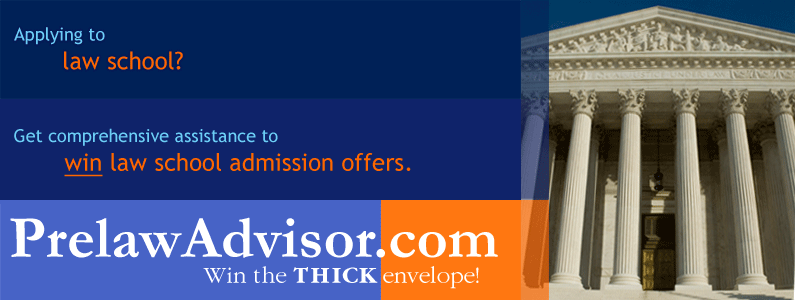I'm planning on applying to law school, but I have a criminal record. What should I do?
 Thursday, August 31, 2006 at 01:25PM
Thursday, August 31, 2006 at 01:25PM I frequently deal with law school advisees who have had a brush with the law in their past. It might have been underage drinking, with the use of a false ID card. It might have been a speeding ticket, or one for violation of some other motor vehicle law, such as curfew violation or failure to use a seatbelt. It could have been a noise violation in your college setting.
Here's how to handle the issue of disclosing a criminal record in a law school application.
1. Don't hide anything. Make a full disclosure. Answer the law school's question fully and with complete honesty. Some law schools require the disclosure of matters officially expunged from the criminal record. Disclose them. I actually recommend that you disclose all matters, including expunged convictions.
2. "Fall on your sword." In other words, "Admit your mistake(s) emphatically." What was wrong is wrong. Don't try to justify bad behavior or let yourself off the hook. Don't make the argument that "Everybody was doing it." Convince them now that you would never engage in such behavior again.
3. Remember that you will have to make a full disclosure as well--down the road--to the state bar of the state where you will want to practice law. State bars may look back to your law school application to see what you said about your criminal record. It had better be a full, complete and entirely honest disclosure, conforming precisely to the disclosure you make on your bar exam, or--frankly--you may not be admitted to the bar. So don't cut any corners in this extremely important area of your law school applications.
If you need help in this area, please see my website, www.PrelawAdvisor.com or send an e-mail to BradDobeck@aol.com.

